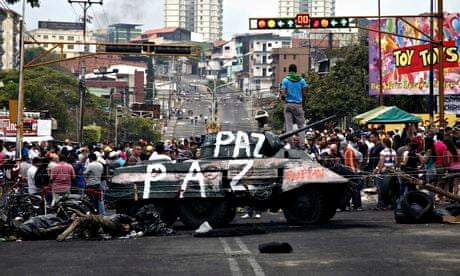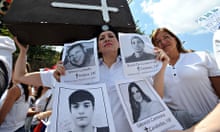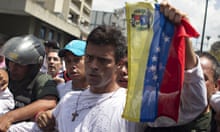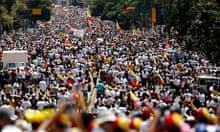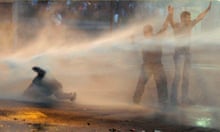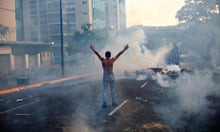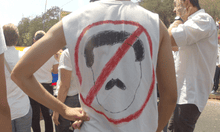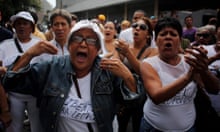The Venezuelan military plans to send additional troops to a border region where unrest has been particularly fierce, officials said, as the government faced growing criticism for its heavy-handed attempt to subdue a protest movement with nighttime sweeps that have turned many parts of the country into dangerous free-fire zones.
The interior minister, Miguel Rodriguez Torres, said a battalion of paratroopers would be dispatched to the state of Tachira, on the western border with Colombia, where protesters have clashed with police and national guard units, bringing the state capital, San Cristobal, to a halt.
"These units will enable the city to function, so food can get in, so people can go about their normal lives," Rodriguez said. "It's simply meant to restore order."
Members of the opposition have accused the government of President Nicolás Maduro of leaning too heavily on the military as well as police and civilian militias to squash opposition to his socialist government.
San Cristobal's vice-mayor, Sergio Vergara, a member of the opposition, said the government had already cut off vital services including public transportation and the internet, to crack down on what had been peaceful protests.
The presence of 3,000 troops in a city of 600,000, Vergara said, was "effectively part of an effort at repression being played out by the government across the country".
Violence has been escalating across Venezuela since an opposition rally on 12 February that turned violent and left three people dead. Since then, there have been at least three more deaths as well as dozens of injuries and arrests.
Police, national guard troops and members of private militias have swarmed through streets in the capital and elsewhere firing volleys, at times indiscriminately, in repeated spasms of nighttime violence in recent days.
Henrique Capriles, the two-time presidential candidate of an opposition coalition, said the government had engaged in "brutal repression" as it went after students and other protesters, in some cases breaking into apartment buildings to arrest those it accused of taking part in an attempted coup.
"What does the government want, a civil war?" Capriles asked at a news conference.
David Smolansky, an opposition mayor of a district in Caracas, said the country was passing through the harshest wave of political persecution in decades with the response to the protests and the jailing of opposition leader Leopoldo Lopez. "If this isn't a totalitarian system then I don't know what can explain what is happening in this country," Smolansky said.
